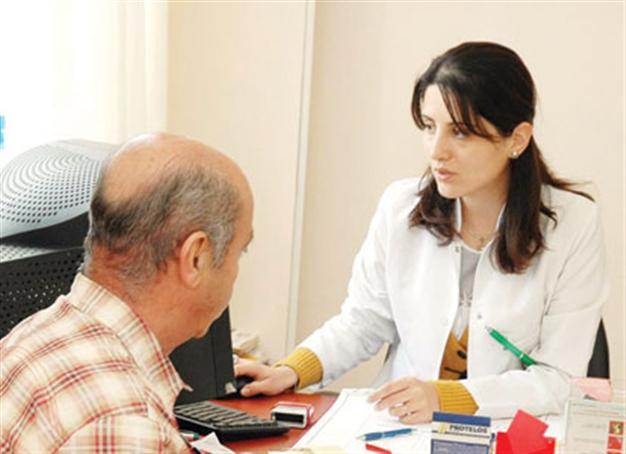
The recent full time law has opened debate on doctors’ working hours in Turkey. DAILY NEWS photo, Hasan ALTINIŞIK
Patient Rights Day was commemorated yesterday in Turkey amid complaints from many patient rights activists who argue that the “Full-Time Law” has increased the waiting time for people seeking treatment at university hospitals.
A large number of patients, especially in the orthopedic and surgical departments, suffer from a lack of doctors since their doctors left the hospitals and continued treatment in their private offices due to the new law, Professor Zeki Kılıçaslan told the Hürriyet Daily News.
The Full-Time Law, prepared by the ruling Justice and Development Party (AKP), requires doctors employed by public institutions (universities and state hospitals) to work a full day, forcing doctors to choose between public or private practice.
Before the new law, doctors were obligated to observe a half-time system, allowing them to split their time between public and private institutions. Mustafa Sütlaş, a member of the Patient Rights Platform,
confirmed Kılıçaslan’s remarks and told the Daily News that the government should have listened to all parties and NGOs before enacting the new law.
“A minority of doctors abused the health system, and because of the mistake of the minority, the majority, and more importantly the patients, has been affected,” Sütlaş said, adding that the government targeted doctors who received illegal benefits from patients who needed surgery or treatment.
“If the family doctors’ offices can be controlled regularly, the private offices of the doctors could have been controlled as well to prevent illegal benefits,” Sütlaş said. Also, the passing of the Full-Time Law sparked many public protests throughout Turkey in recent months.
On the other hand, Orhan Demir, head of the Patient Rights Activists Association, said the Full-Time Law was supported by a majority of doctors because it enhanced their working conditions. When it comes to patients’ problems, Demir underlined the lack of privacy. “There are many problems of patients, especially in university hospitals, such as doctors who invite their students to the treatment room without permission of the patient,” Demir said, adding that in one case a doctor allowed four students to conduct a gynecological treatment without asking for the patient’s permission.
“There is a common psychology among patients who are in a depressed mood that does not allow for questioning the authority,” Demir said, emphasizing that some doctors do not respect their patients, even operating on them without closing the curtains in emergency rooms filled with people.
In case of a debate between a doctor and patients, the chief doctor always wants to take the doctor’s side, Demir said.
Demir said the media could also be disrespectful on the issue of patient rights. “The media should take more responsibility and be more careful while recording or taking pictures in emergency rooms.” k HDN